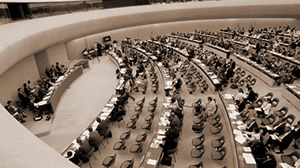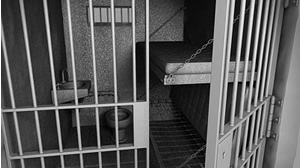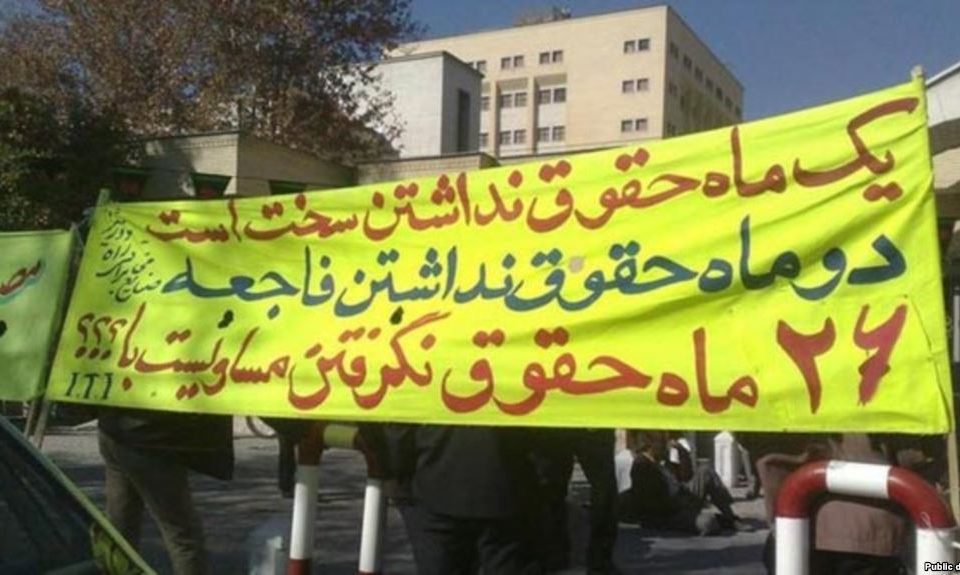
UNHRC Appoints Special Rapporteur (Update)
March 24, 2011
Special Rapporteur: Listen to Independent Voices
March 25, 2011The Massacre of Prisoners at Ghezel Hesar Prison and the Dearth of Institutions to Defend Prisoners’ Rights
21 March 2011 , Arseh Sevom – On the night of 14 March 2011, in Ghazal Hesar prison, located in Karaj, there was a fight between a group of prisoners and prison guards. According to human rights organizations, the fighting began following a protest by many prisoners against the living conditions and the probable implementation of death sentences. Unofficial sources report that 31 prisoners died in these clashes at Ghazal Hesar prison. Some reports indicate that prison guards used guns with live ammunition in confrontations with the prisoners.
The State Prisons and Security and Corrective Measures Organization has claimed that “a number of hostile prisoners accused of trafficking illegal drugs, for whom death sentences had been issued, were engaging in sabotage and attempted to escape. Nevertheless, because of the decisive actions of responsible officials and the cooperation of other prisoners who opposed their actions, the escaped prisoners were unsuccessful.“
The organization stated that judicial investigations of the confrontation had begun.
Arseh Sevom declares with certainty that responsibility for the lives of the prisoners and for the events that occurred at Ghezal Hesar prison lies with the prison officials and the State Prisons and Security and Corrective Measures Organization. No legal action has been taken against individuals responsible for the killing of prisoners. Instead, the State Prisons Organization has endorsed “the firmness of the actions of prison officials” in killing prisoners.
It is unclear wheter an independent institution will carry out the investigations that they claim have begun, or to what aim.
The killing of this many prisoners does not represent a singular event; rather, it serves as red flag that warns us that the lives of other prisoners who are serving prison sentences throughout Iran’s prison system are in danger. The public disclosure of this event is an expression of the fact that officials of the State Prisons Organization are not committed to their highest duty, which is the protection of the prisoners’ lives and defending their right to life, and they have divested themselves from that responsibility.
The events that occurred at Ghezal Hesar prison suggest how vital and important it is that independent organizations exist for the defense of prisoners’ rights. They also suggest that, in the absence of such organizations, prisoners have no form of support or patronage for defending their fundamental rights.
The harrassment and forced closure of institutions such as the Society for the Defense of Prisoners’ Rights and the arrest of its Director, Emadeddin Baghi, has rendered prisoners more vulnerable and without recourse. In the absence of supervision by such groups, the condition of prisoners is worsening day-by-day in Iran, and violations of prisoners’ rights continue unabated.
Regardless of any crimes they may have committed or charges against them, all prisoners are entitled to their rights principal among which is the right to life and security.
Arseh Sevom condemns the killings of these prisoners by prison guards at Ghezal Hesar prison and demands that the Islamic Republic of Iran judiciary create a panel of investigators and independent lawyers to identify the perpetrators and try the, fairly, in the judicial system.
Arseh Sevom demands that the Islamic Republic of Iran officials make full use of this opportunity and remove all restrictions they have previously placed against organizations that defend prisoners’ rights, such as the Society for the Defense of Prisoners’ Rights and the Human Rights DefendersCenter. Further, they should give permission to these organizations to take action on affairs relating to the investigation and trial of the perpetrators of the killings at Ghazal Hesar prison. If government officials fulfill these demands, Iranian society will gain trust in the independence and fairness of the trials of these officials.
Arseh Sevom also requests that the Bar Association, as one of the oldest civil society institutions in Iran, take a decisive and serious position in relation to such a disastrous event.





